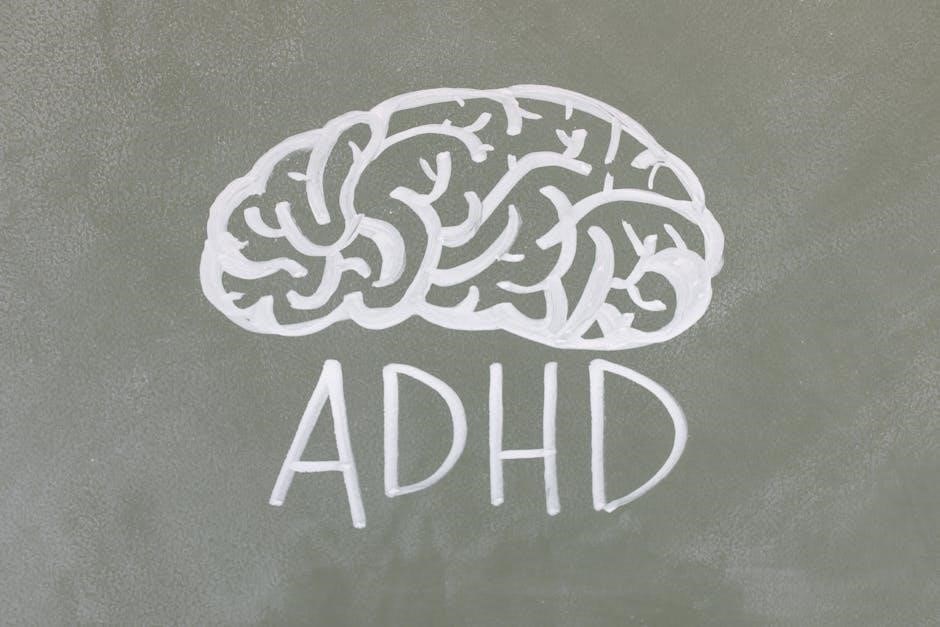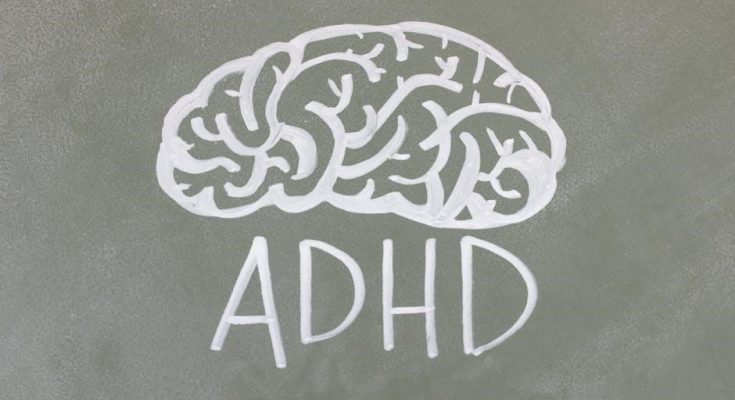Cognitive speech therapy helps adults enhance communication and cognitive skills, addressing conditions like aphasia, stroke, or brain injuries. It focuses on memory, attention, and problem-solving through structured activities.
Overview of Cognitive Speech Therapy
Cognitive speech therapy is a specialized approach focusing on improving communication and cognitive functions in adults. It addresses issues like memory, attention, and problem-solving, often arising from conditions such as aphasia, traumatic brain injury, or dementia. Tailored activities enhance language processing, executive functions, and daily communication skills. Techniques like Response-Elaboration Training (RET), naming exercises, and spaced retrieval help adults regain independence and confidence in their ability to communicate effectively.
Importance of Cognitive Rehabilitation for Adults
Cognitive rehabilitation is essential for adults to regain independence and confidence in daily communication. It addresses memory, attention, and problem-solving deficits, improving overall quality of life. Techniques like RET, naming therapy, and spaced retrieval enhance language processing and executive functions. These interventions are tailored to individual needs, fostering independence and reducing reliance on others. Regular practice strengthens neural pathways, promoting long-term recovery and adaptation, making it a vital component of adult speech therapy programs.

Key Concepts in Cognitive Speech Therapy
Cognitive speech therapy focuses on enhancing memory, attention, and problem-solving skills. It addresses communication challenges by strengthening neural pathways and improving language processing abilities in adults.
Memory Enhancement Strategies
Memory enhancement strategies in cognitive speech therapy focus on improving recall and retention. Techniques like spaced retrieval, word repetition, and mental imagery are commonly used. Activities such as storytelling, word association, and pattern recognition help strengthen memory. Calendar tasks and daily writing exercises also promote memory improvement. These strategies aim to compensate for memory deficits, enhancing communication and daily functioning in adults. Consistent practice and structured exercises are essential for long-term progress.
Attention and Problem-Solving Skills
Attention and problem-solving skills are critical in cognitive speech therapy for adults. Activities like puzzles, brain teasers, and real-life scenario discussions enhance focus and analytical thinking. Tasks such as planning a trip or solving Sudoku improve executive functions. YouTube videos and structured exercises also aid in improving attention span. These strategies help adults regain confidence in their ability to process information and make decisions effectively, fostering independence in daily life.
Executive Function Development
Executive function development in cognitive speech therapy focuses on enhancing planning, organizing, and self-monitoring skills. Activities like task sequencing, daily writing, and using planners help adults improve their ability to manage tasks. These strategies are particularly beneficial for individuals with conditions such as TBI or stroke, fostering independence and confidence in daily activities. By practicing these skills, adults can better navigate complex tasks and maintain consistency in their progress.
Specific Cognitive Speech Therapy Activities
Cognitive speech therapy involves targeted activities like Response-Elaboration Training, Naming Therapy, and Task Sequencing to improve communication, memory, and problem-solving skills in adults with cognitive challenges.

Response-Elaboration Training (RET)
Response-Elaboration Training (RET) is an evidence-based method in cognitive speech therapy that helps adults with aphasia or cognitive impairments to elaborate on their responses. This technique encourages individuals to initiate, expand, and clarify their messages, enhancing communication skills. RET involves structured prompts and feedback to improve message quality and engagement. It is particularly effective for addressing expressive language deficits and promoting meaningful interactions. Regular practice with RET can lead to significant improvements in conversational abilities and overall communication confidence.
Naming Therapy for Word Recall
Naming Therapy is a widely used technique in cognitive speech therapy to improve word retrieval in adults with aphasia or memory impairments. This method involves presenting individuals with categories, such as animals, food, or cities, and asking them to name as many items as possible within each category. This exercise stimulates lexical retrieval and enhances semantic memory. By practicing regularly, adults can improve their ability to recall words, boosting communication confidence and clarity in daily interactions.
Task Sequencing and Organization
Task sequencing and organization are essential cognitive speech therapy activities that help adults improve planning and execution skills. These exercises involve breaking down complex tasks into manageable steps, enhancing problem-solving and memory. For example, planning a trip or organizing daily routines encourages logical thinking and time management; Visual aids like flowcharts or checklists can support these activities, fostering independence and confidence in completing tasks effectively. Regular practice strengthens executive function, making daily life more structured and manageable.
Spaced Retrieval for Memory Improvement
Spaced retrieval is a powerful technique in cognitive speech therapy that enhances memory by repeating information at increasing intervals. This method helps adults with memory impairments, such as those with aphasia or brain injuries, to recall words, phrases, and concepts more effectively. By gradually extending the time between practice sessions, individuals can improve long-term retention. Activities like flashcard exercises or app-based drills are commonly used. This structured approach strengthens memory consistency and supports better communication and daily functioning.

Practical Applications and Daily Activities
Engage adults in daily tasks like calendar planning, journaling, and word games to enhance attention, memory, and communication skills through practical, real-world cognitive exercises.
Calendar Tasks for Planning and Organization
Calendar tasks are effective for improving planning and organization skills in adults. Use a blank monthly calendar or planner to identify days of the week, schedule appointments, and set reminders. Patients can practice marking important dates, tracking routines, and organizing tasks; This activity enhances memory, attention, and executive function while providing a practical tool for daily life. Encourage patients to use visual cues and break tasks into smaller steps for better comprehension and retention.
Daily Writing to Enhance Attention
Daily writing activities are excellent for improving attention and memory in adults. Start with journaling to document thoughts, feelings, or daily events. Create to-do lists to practice organization and task prioritization. Writing exercises like describing a memory or reflecting on goals can also enhance focus. These activities strengthen cognitive function by requiring sustained attention and reducing mind-wandering. Encourage patients to write for 10-15 minutes daily to see consistent improvement in their ability to concentrate and process information effectively.
Word Association and Storytelling Exercises
Word association and storytelling are powerful tools in cognitive speech therapy for adults. These exercises enhance memory, attention, and communication skills. Start with simple word associations to stimulate language recall, then progress to creating short stories. Encourage patients to describe personal memories or imagine scenarios. Storytelling fosters sequencing, detail retrieval, and expressive language. Regular practice improves cognitive function, confidence, and the ability to engage in meaningful conversations, making these activities both therapeutic and engaging for adult participants.

Technology and Cognitive Rehabilitation
Technology enhances cognitive rehabilitation through interactive tools like online games and apps, improving memory, attention, and problem-solving skills. Platforms offer accessible, engaging exercises for adult therapy.
Utilizing Online Cognitive Games
Online cognitive games are valuable tools in speech therapy, offering interactive and engaging exercises to improve memory, attention, and problem-solving skills. Platforms like FitBrains and Brain Workshop provide tasks tailored to adult needs, enhancing cognitive function. These games often focus on areas such as word recall, pattern recognition, and executive functions, making them ideal for daily practice. Regular use can strengthen neural pathways, promoting consistent progress in communication and cognitive abilities. They also offer flexibility, allowing adults to practice therapy in a comfortable and accessible manner.
YouTube for Attention and Memory Practice
YouTube offers a wide range of cognitive exercises tailored for adults, focusing on attention and memory improvement. Channels provide guided sessions, memory-enhancing videos, and attention-building tasks. These resources help individuals practice focus, recall, and cognitive processing. Videos often include storytelling, word association, and problem-solving scenarios, making therapy engaging and accessible. Regular use can strengthen neural pathways, improving communication and daily functioning. YouTube’s accessibility ensures adults can practice consistently, reinforcing therapy goals in a convenient and engaging manner.

Creating a Home Program for Cognitive Speech Therapy
Setting Goals and Tracking Progress
Setting clear, achievable goals is essential for a home program. Use specific, measurable objectives to track progress, such as improving memory or enhancing attention. Regularly review and update goals to ensure relevance and motivation. Tools like planners or journals can help monitor advancements, providing a clear roadmap for consistent improvement and celebrating small successes along the way.
Setting clear, measurable goals is crucial for effective cognitive speech therapy. Collaborate with a therapist to define objectives tailored to individual needs, ensuring they are specific and attainable. Break larger goals into manageable tasks to maintain motivation and track progress using tools like checklists or apps. Regular follow-ups with the therapist allow for adjustments and celebrate milestones, fostering a sense of accomplishment and keeping the patient engaged in their recovery journey.
Daily Practice for Consistent Improvement
Daily practice is essential for consistent progress in cognitive speech therapy. Engage in activities like word association, storytelling, and memory exercises to reinforce learning. Utilize tools such as planners or apps to maintain routine and track progress. Consistency strengthens neural connections, improving communication and cognitive function over time. Regular practice fosters confidence and independence, making daily tasks more manageable and enhancing overall quality of life.
Cognitive speech therapy offers transformative benefits for adults, enhancing communication and cognitive skills. Explore resources like workbooks, online courses, and professional guidance to continue your journey effectively.
Final Thoughts on Cognitive Speech Therapy
Cognitive speech therapy empowers adults to regain communication and cognitive skills, fostering independence and confidence. By integrating personalized strategies and consistent practice, individuals can achieve meaningful progress. Utilizing resources like workbooks, online tools, and professional guidance further enhances outcomes. This approach not only addresses specific deficits but also promotes overall brain health, making it a vital tool for long-term recovery and well-being.
Recommended Resources for Further Learning
For deeper exploration, consider “The Adult Speech Therapy Workbook” by Chung Brewer, offering practical exercises. Online courses like “The Adult Speech Therapy Roadmap” provide comprehensive training. Websites such as SLP Healing offer free PDF guides and activity ideas. YouTube channels dedicated to speech therapy demonstrate techniques for memory and attention. Pinterest boards showcase creative cognitive activities for adults. These resources support continuous learning and effective implementation of cognitive speech therapy strategies.



